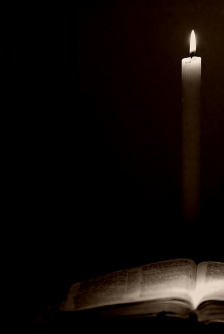August 25, 2024: Fourteeth Sunday after Pentecost
John 6:56-69
Jesus said, “Those who eat my flesh and drink my blood abide in me, and I in them. Just as the living Father sent me, and I live because of the Father, so whoever eats me will live because of me. This is the bread that came down from heaven, not like that which your ancestors ate, and they died. But the one who eats this bread will live forever.” He said these things while he was teaching in the synagogue at Capernaum.
When many of his disciples heard it, they said, “This teaching is difficult; who can accept it?” But Jesus, being aware that his disciples were complaining about it, said to them, “Does this offend you? Then what if you were to see the Son of Man ascending to where he was before? It is the spirit that gives life; the flesh is useless. The words that I have spoken to you are spirit and life. But among you there are some who do not believe.” For Jesus knew from the first who were the ones that did not believe, and who was the one that would betray him. And he said, “For this reason I have told you that no one can come to me unless it is granted by the Father.”
Because of this many of his disciples turned back and no longer went about with him. So Jesus asked the twelve, “Do you also wish to go away?” Simon Peter answered him, “Lord, to whom can we go? You have the words of eternal life. We have come to believe and know that you are the Holy One of God.”
Just prior to this passage in John 6: 35, Jesus identified himself as the bread of life after he fed the crowd who had followed him with the miracle of the loaves and fishes. This same crowd, looking for more food, were encouraged by Jesus to seek “the bread of God is that which comes down from heaven and gives life to the world” (John 6: 33). They had no idea what he was talking about, and many in the crowd left because they objected to his words.
But Peter wanted to stay, because he believed in Jesus and believed in his life-giving words. He knew there was nothing else out there that could sustain him like the message of Jesus. His question, “Lord, to whom can we go?” (John 6: 68) witnessed to his radical trust in Jesus and his belief that Jesus was “the Holy One of God” (John 6: 69).
We know, however, that Peter’s faith wasn’t always so steadfast. Later in the gospel of John, we hear that Peter will deny Jesus three times (John 18: 15-27).
Aren’t we all like Peter at times? We, too, vacillate in our faith in God. Sometimes our faith might be strong, like Peter’s was in today’s gospel, and sometimes it is weak. But by seeking Jesus, the bread of life, we are given the grace to trust in God, and we find that which truly sustains us, “the spirit that gives life” (John 6: 63).
And how to seek Jesus, the bread of life? How do we go about finding the “Holy One of God”? One possible model which is deeply rooted in the spiritual practices of the early Christian desert fathers, and then adopted by Ignatius of Loyola and his followers, is the practice of contemplation and action. Contemplation is about being open to God through prayer, and action is service to others. Both behaviors can be transformational and serve to make us more loving individuals. We cannot have one without the other – contemplation fuels service and vice versa. The foundation for these spiritual practices is God, who created us in love and seeks to be in relationship with us.
